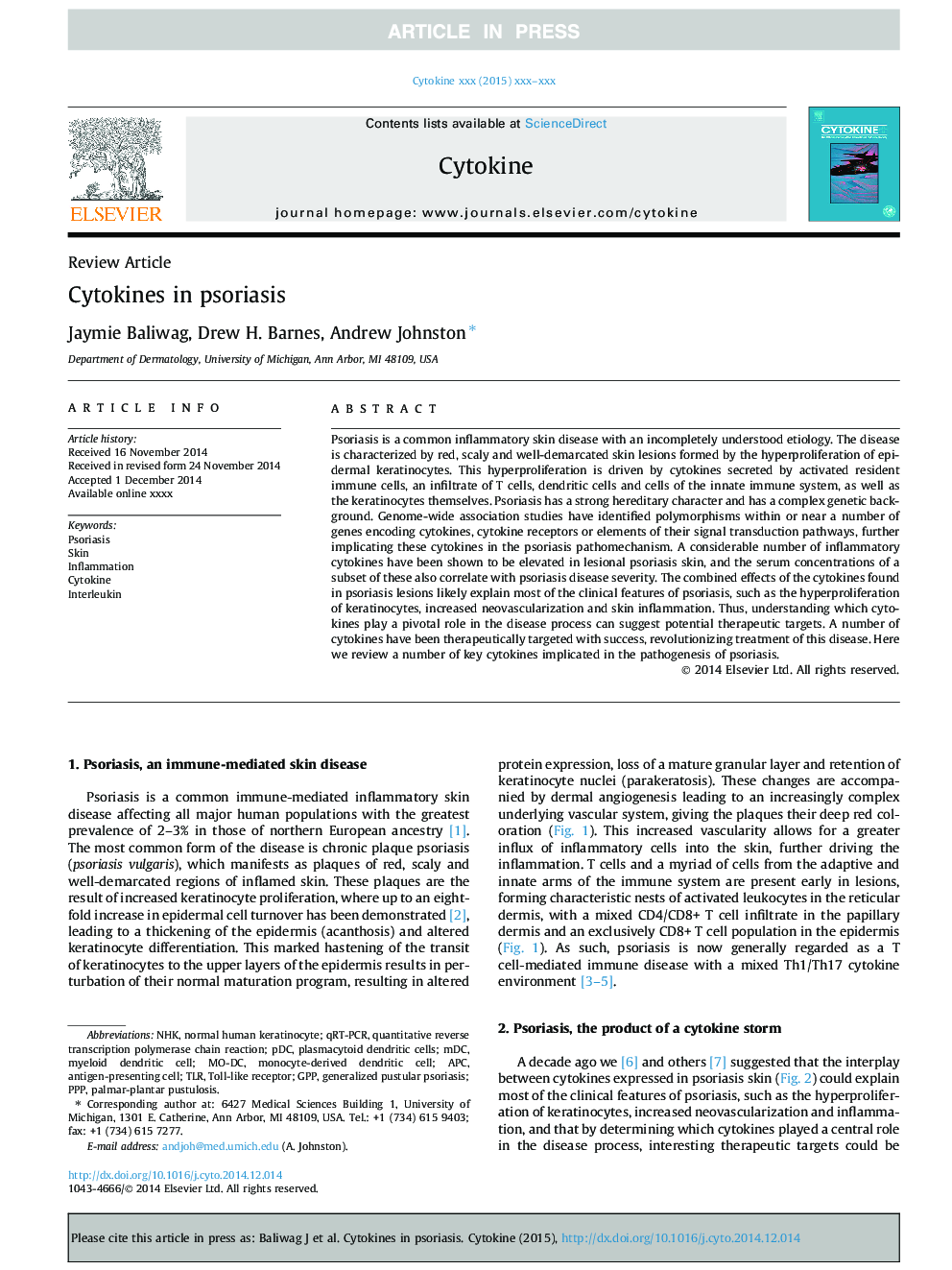| کد مقاله | کد نشریه | سال انتشار | مقاله انگلیسی | نسخه تمام متن |
|---|---|---|---|---|
| 5897022 | 1155250 | 2015 | 9 صفحه PDF | دانلود رایگان |
عنوان انگلیسی مقاله ISI
Cytokines in psoriasis
ترجمه فارسی عنوان
سیتوکین ها در پسوریازیس
دانلود مقاله + سفارش ترجمه
دانلود مقاله ISI انگلیسی
رایگان برای ایرانیان
کلمات کلیدی
Mo-DCPDCPPPGPPNHKqRT-PCRAPCTLRMDCantigen-presenting cell - آنتیژن ارائه سلولinflammation - التهاب( توروم) interleukin - اینترلوکینToll-like receptor - تیالآرMyeloid dendritic cell - سلول های دندریتیک میلوئیدMonocyte-derived dendritic cell - سلولهای دندانیایی مونوسیتplasmacytoid dendritic cells - سلولهای دندریتیک پلاسماسیتیوئیدCytokine - سیتوکینquantitative reverse transcription polymerase chain reaction - واکنش زنجیره ای پلی مراز رونویسی معکوسPsoriasis - پسوریازیسGeneralized pustular psoriasis - پسوریازیس پوسچر به طور کلیSkin - پوستNormal Human Keratinocyte - کراتینوسیت طبیعی انسان
موضوعات مرتبط
علوم زیستی و بیوفناوری
بیوشیمی، ژنتیک و زیست شناسی مولکولی
علوم غدد
چکیده انگلیسی
Psoriasis is a common inflammatory skin disease with an incompletely understood etiology. The disease is characterized by red, scaly and well-demarcated skin lesions formed by the hyperproliferation of epidermal keratinocytes. This hyperproliferation is driven by cytokines secreted by activated resident immune cells, an infiltrate of T cells, dendritic cells and cells of the innate immune system, as well as the keratinocytes themselves. Psoriasis has a strong hereditary character and has a complex genetic background. Genome-wide association studies have identified polymorphisms within or near a number of genes encoding cytokines, cytokine receptors or elements of their signal transduction pathways, further implicating these cytokines in the psoriasis pathomechanism. A considerable number of inflammatory cytokines have been shown to be elevated in lesional psoriasis skin, and the serum concentrations of a subset of these also correlate with psoriasis disease severity. The combined effects of the cytokines found in psoriasis lesions likely explain most of the clinical features of psoriasis, such as the hyperproliferation of keratinocytes, increased neovascularization and skin inflammation. Thus, understanding which cytokines play a pivotal role in the disease process can suggest potential therapeutic targets. A number of cytokines have been therapeutically targeted with success, revolutionizing treatment of this disease. Here we review a number of key cytokines implicated in the pathogenesis of psoriasis.
ناشر
Database: Elsevier - ScienceDirect (ساینس دایرکت)
Journal: Cytokine - Volume 73, Issue 2, June 2015, Pages 342-350
Journal: Cytokine - Volume 73, Issue 2, June 2015, Pages 342-350
نویسندگان
Jaymie Baliwag, Drew H. Barnes, Andrew Johnston,
